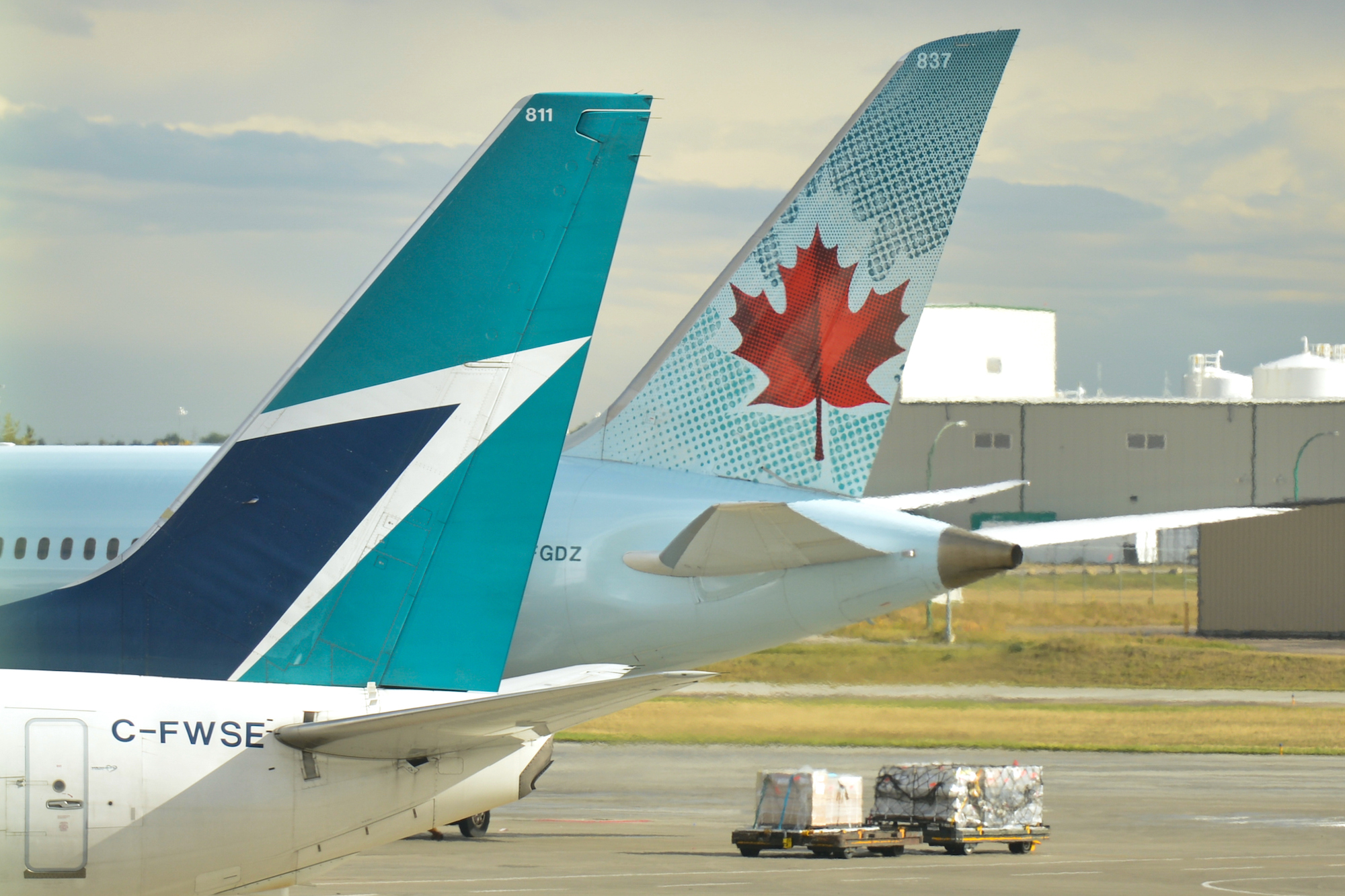In November 2020, Air Canada launched the Buddy Pass as a signup incentive on their new Aeroplan co-branded credit cards.
The Buddy Pass was positioned as Canada’s first “true” buy-one-get-one companion voucher for economy class travel within North America, offering a $0 base fare for the second passenger when you pay full fare for the first passenger.
Indeed, the Air Canada Buddy Pass was clearly designed to undercut WestJet’s annual companion voucher, a perk of the WestJet RBC World Elite Mastercard that required a $119 base fare for the second passenger. And in response, WestJet has since introduced their own $0 companion voucher as a promotional incentive until May 2021.
Both products can unlock significant value for couples and families as they embark on post-pandemic trips, so it’s about time they went Head-to-Head to determine which product is superior.
Earning
Let’s begin by comparing the Air Canada Buddy Pass and WestJet’s $0 companion voucher on the earning side.
Ease of Earning
As of the Spring 2021 cycle of welcome bonuses, the following credit cards are currently offering the Air Canada Buddy Pass as part of their signup incentives:
- Core cards:
- TD Aeroplan Visa Infinite: Air Canada Buddy Pass upon spending $1,000 in the first three months + 10,000 Aeroplan points, First Year Free
- CIBC Aeroplan Visa Infinite: Air Canada Buddy Pass upon spending $1,000 in the first three months + 10,000 Aeroplan points, First Year Free
- American Express Aeroplan Card: Air Canada Buddy Pass upon spending $1,500 in the first three months + Up to 15,000 Aeroplan points, $120 annual fee
- Premium cards:
- TD Aeroplan Visa Infinite Privilege: Air Canada Buddy Pass upon spending $1,000 in the first three months + 50,000 Aeroplan points, $599 annual fee
- Small business cards:
- TD Aeroplan Visa Business: Air Canada Buddy Pass upon spending $1,000 in the first three months + 10,000 Aeroplan points, First Year Free
- CIBC Aeroplan Visa Business: Air Canada Buddy Pass upon spending $1,000 in the first three months + 10,000 Aeroplan points, First Year Free
Meanwhile, you’ll earn WestJet’s $0 companion voucher by signing up for the WestJet RBC World Elite Mastercard and making your first purchase – or if you’re a current cardholder and you renew your card (i.e., get charged the second year’s annual fee).
Verdict: There are more credit cards to choose from if you’re interested in the Air Canada Buddy Pass; however, all of them require a minimum spending requirement of at least $1,000 in the first there months. WestJet’s $0 companion voucher is easier to earn, since it requires only a single purchase on a new credit card or renewing your existing one.
Quantity
On each of the Aeroplan credit cards, the terms and conditions of the Buddy Pass offer state the following:
This one-time Bonus Buddy Pass is only valid for eligible cardholders. You will not be eligible for the Bonus Buddy Pass if you have previously opened an Aeroplan Program credit card of the same type, regardless of the credit card issuer and have received the Welcome Bonus offer in the last 12 months.
Therefore, any Aeroplan member can earn up to three Buddy Passes: one in each “type” of co-branded credit cards (core, premium, and small business). This can be very useful if you’re looking to take multiple trips over the next few years with a companion in tow.
Meanwhile, based on how WestJet’s annual companion voucher has worked in the past, you should be able to earn as many WestJet $0 companion vouchers as how many WestJet RBC World Elite Mastercards you can hold simultaneously.
According to some data points, cardholders who have had a reason to hold multiple cards (such as needing to separate your expenses on different cards) have been allowed to do so.
Another factor to consider is that the Air Canada Buddy Pass is a one-time benefit on the Aeroplan co-branded cards, whereas WestJet’s companion voucher is an annual recurring benefit on the WestJet RBC World Elite.
Even though the $0 base fare is only currently available in the first year as a promotional benefit, future companion vouchers starting at $119 can still offer sizeable savings if used against relatively high base fares.
Verdict: Each Aeroplan member is limited to a maximum of three Air Canada Buddy Passes over a 12-month period, and they’re a one-time thing upon signing up. On the other hand, there doesn’t appear to be an upper limit on how many WestJet companion vouchers ($0 or otherwise) a member can hold, and it’s a recurring benefit year after year. This round goes in WestJet’s favour.
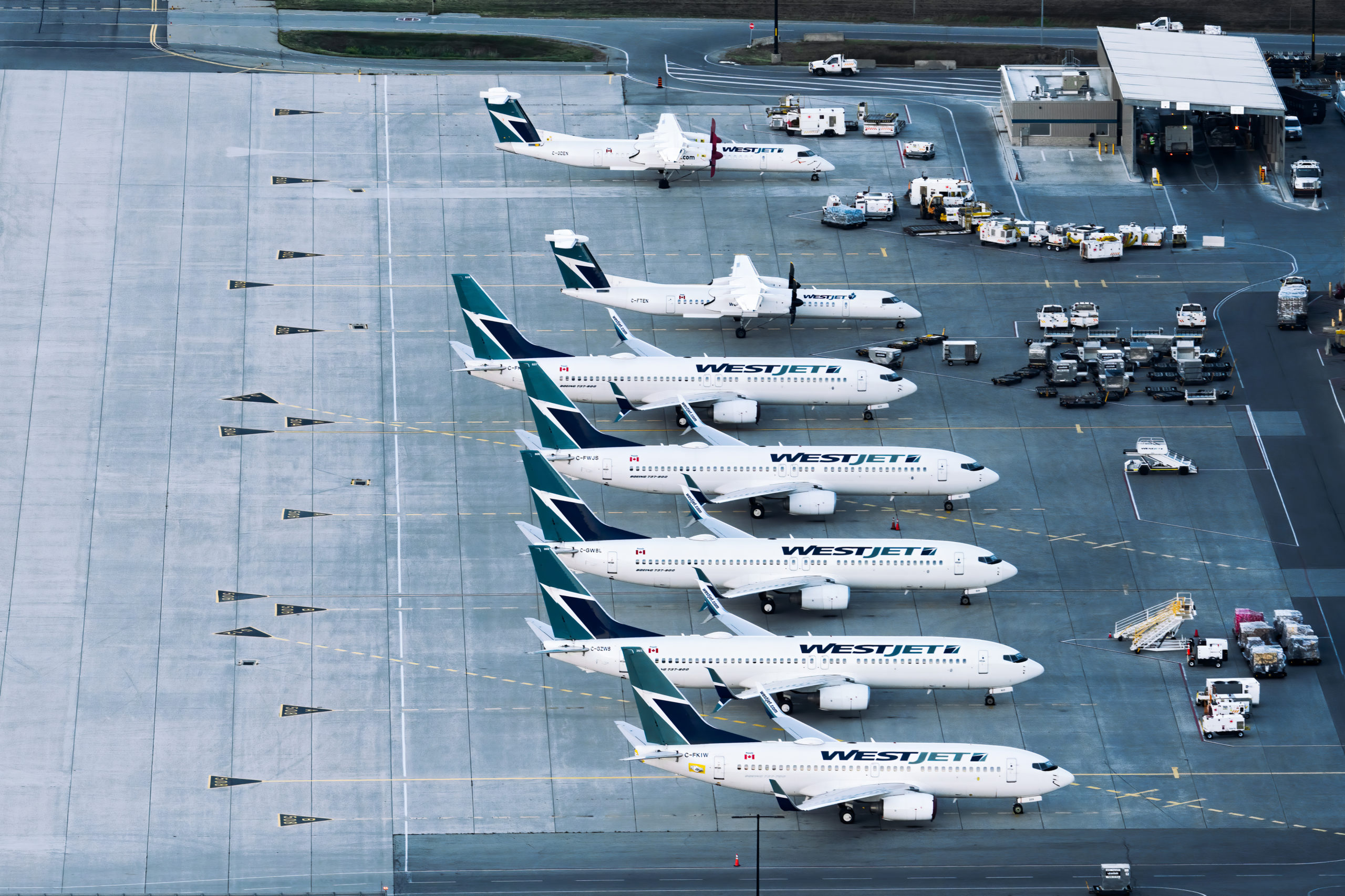
Convertibility
Air Canada Buddy Passes cannot be converted into anything else, even though the program’s leadership had indicated on a livestream with Anshul from Points, Miles, and Bling that they would consider looking into implementing such an option.
On the other hand, WestJet’s companion vouchers ($0 or otherwise) can be converted into a set of four WestJet lounge passes if the holder doesn’t see value in the companion voucher (perhaps if they’re a solo traveller).
These lounge passes can be used prior to any WestJet flight, including at the newly-opened and very impressive WestJet Elevation Lounge Calgary.
Verdict: Convertible into a set of four lounge passes, WestJet’s $0 companion voucher offers greater flexibility than the Air Canada Buddy Pass if the holder doesn’t find value in using a companion voucher.
Earning Period
The signup offers on the TD Aeroplan credit cards are currently scheduled to last until May 30, 2021. It appears to be no coincidence that WestJet has also scheduled its $0 promotional companion voucher to end on May 31, 2021.
Meanwhile, there is no published end date on the Aeroplan credit cards by CIBC and American Express that also issue the Air Canada Buddy Pass.
Verdict: Honours even for now. Both the Air Canada Buddy Pass and WestJet’s $0 companion voucher will be in the market until at least May 2021, although I certainly wouldn’t be surprised to see Air Canada’s offering extended later into the year and WestJet matching that extension.
Redeeming
On the earning side, WestJet’s $0 companion voucher is easier to earn, accumulable in greater quantity, and more flexible in terms of conversion options.
But it’s the redemption rules that matter when it comes to extracting value out of a companion voucher, so let’s take a look at how Air Canada and WestJet’s offerings stack up here.
Eligible Destinations
The Air Canada Buddy Pass can be used on one-way or round-trip tickets within Canada, the United States (including Hawaii), and Mexico. Other parts of North America, such as Central America and the Caribbean, are excluded.
Meanwhile, WestJet’s $0 companion voucher is valid throughout the entire continent, including Canada, the United States (including Hawaii), Mexico, Central America, and the Caribbean.
Indeed, flights to WestJet’s destinations in Costa Rica and the Caribbean might well represent the best-value use of the $0 companion voucher, given the distance travelled and the relatively popularity of these places among travelling couples and families.
Verdict: WestJet wins. It seems pretty clear to me that WestJet took aim for the geographic restrictions on the Air Canada Buddy Pass in designing their product, offering their members a wider range of destinations to which they can redeem their $0 companion voucher.
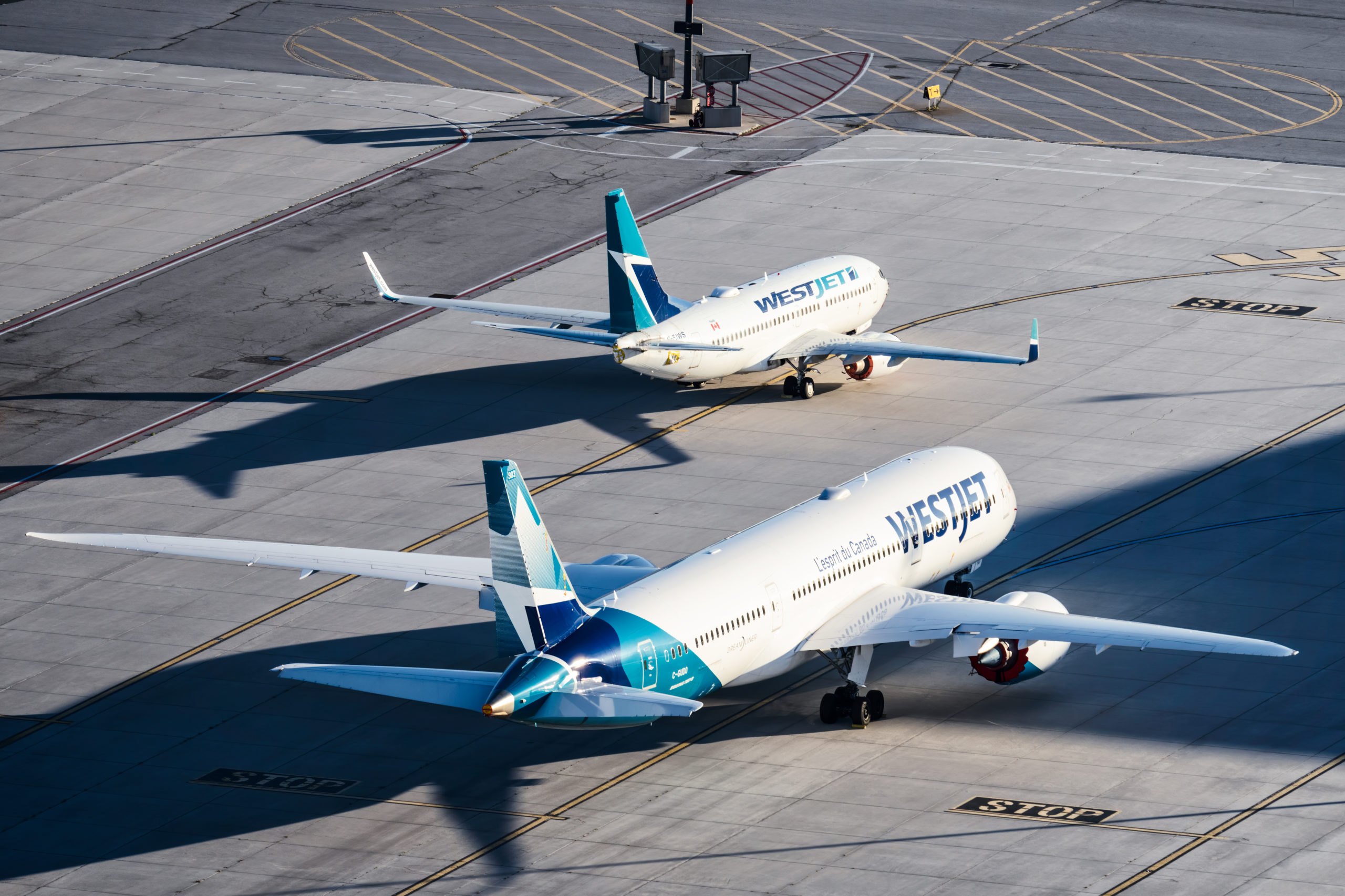
Travel Period
Both the Air Canada Buddy Pass and WestJet’s $0 companion voucher must be redeemed within one year of appearing in your account.
In both cases, you may book future travel of up to one year from the time of booking, meaning that your travel period is essentially up to two years.
Moreover, both products advertise the fact that there are no blackout dates: as long as there are two seats available on a WestJet flight, you can use the Buddy Pass or the $0 companion voucher to unlock a $0 base fare for the second passenger upon paying full fare for the first.
Verdict: It’s a tie. Both offerings are good for travel over a two-year period after earning them, with no blackout dates.
Class of Service
The Air Canada Buddy Pass can be used towards economy class tickets in the Standard, Flex, Comfort, or Latitude fare categories. It isn’t valid on premium economy or business class bookings.
Similarly, WestJet’s $0 companion voucher can be used towards Basic, Econo, and EconoFlex fares within the economy class cabin. Premium and Dreamliner business class redemptions are excluded.
However, Air Canada’s eUpgrades can be applied to Buddy Pass bookings to upgrade the entire reservation (for both passengers) from economy class into premium economy or business class. Indeed, if we take the example of a Hawaii-bound couple or family who prefer to travel in business class, applying eUpgrades to a Latitude Economy booking that was made using a Buddy Pass can be a great way to save on travel costs.
WestJet doesn’t have a dedicated currency for requesting upgrades in advance of your flight, outside of bid upgrades and complimentary upgrades shortly before departure for status members.
Verdict: Both offerings are valid for economy class travel only, but the stronger upgradability of Air Canada Buddy Pass bookings thanks to eUpgrades gives it the edge here.
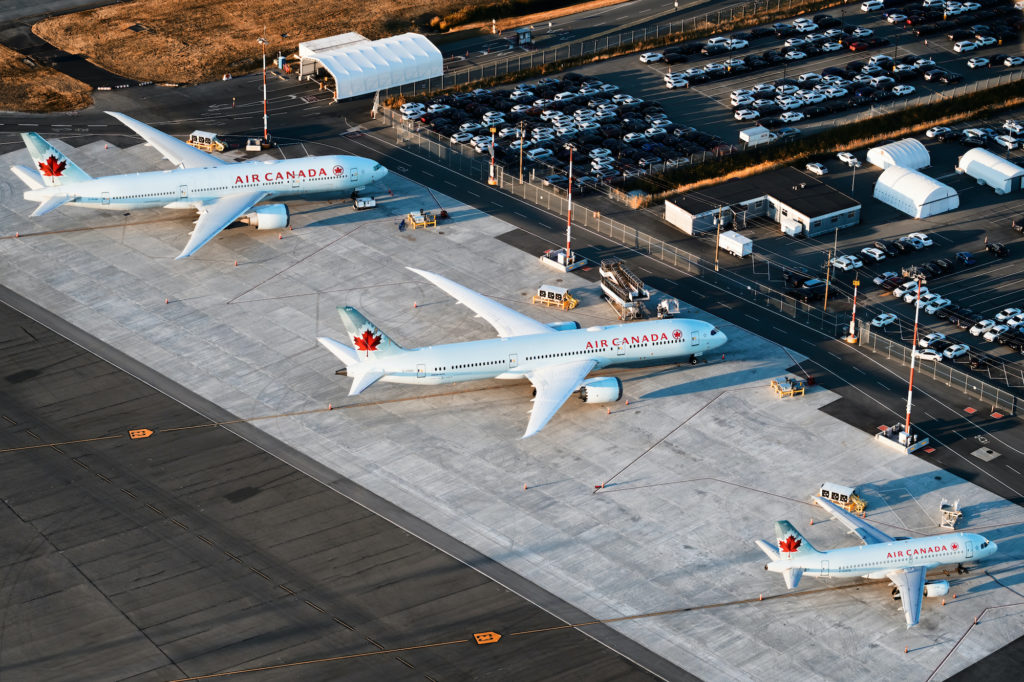
Taxes, Fees, and Surcharges
The Air Canada Buddy Pass’s terms and conditions state the following:
Companion will be responsible to pay all applicable taxes, fees, and charges that apply above the base fare.
The “taxes, fees, and charges” refer to things like GST/HST, the Air Traveller Security Charge, and airport improvement fees for the airports you’re departing from.
You’ll note that Air Canada’s fare composition also includes a “Surcharges” line, which is typically $60 for a round-trip domestic flight. However, when using the Buddy Pass, these charges are lumped together with the base fare and are reduced to $0 for the second passenger.
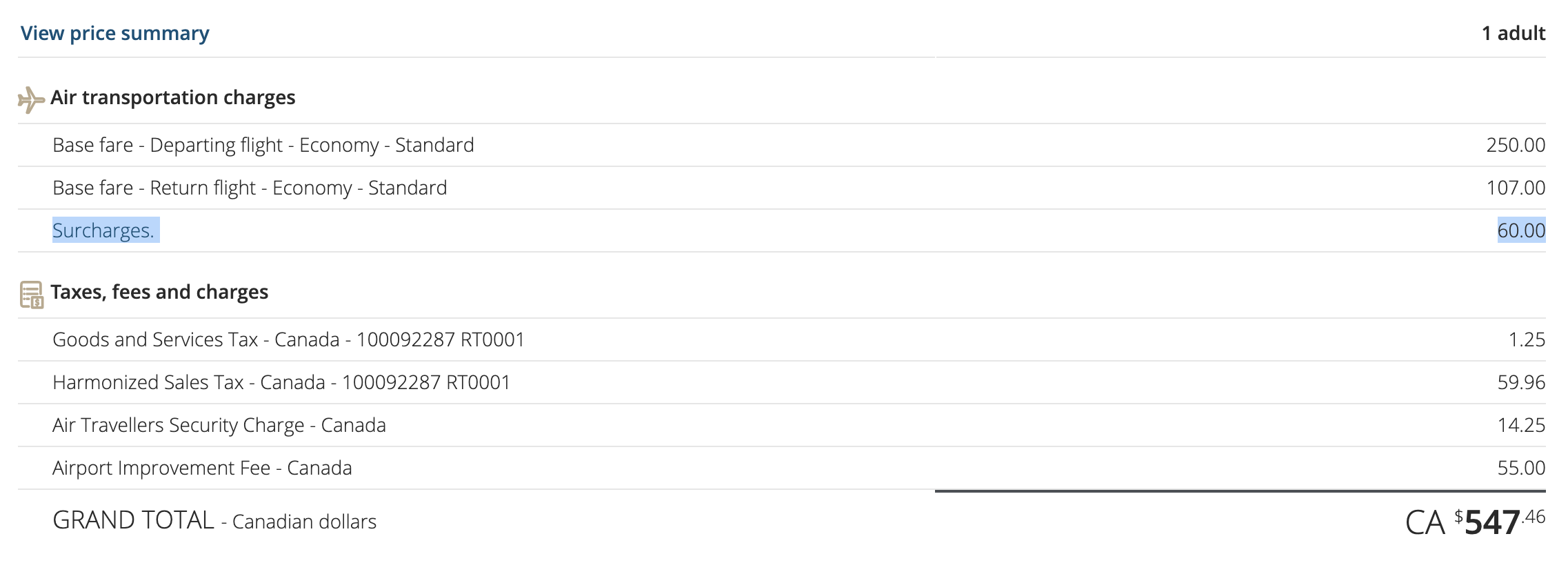
On the other hand, the terms and conditions for WestJet’s $0 companion voucher state the following:
If you became a first-time cardholder between February 24 – May 31, 2021 your first companion voucher will be $0 CAD (plus taxes, fees and other ATC charges) for travel on an Economy fare within Canada, to the U.S., Mexico and the Caribbean.
As you can see, WestJet’s companion voucher specifically excludes “other ATC charges” from the base fare, and requires that the companion pays for this surcharge – again, typically $60 for a round-trip domestic flight – out of their own pocket.
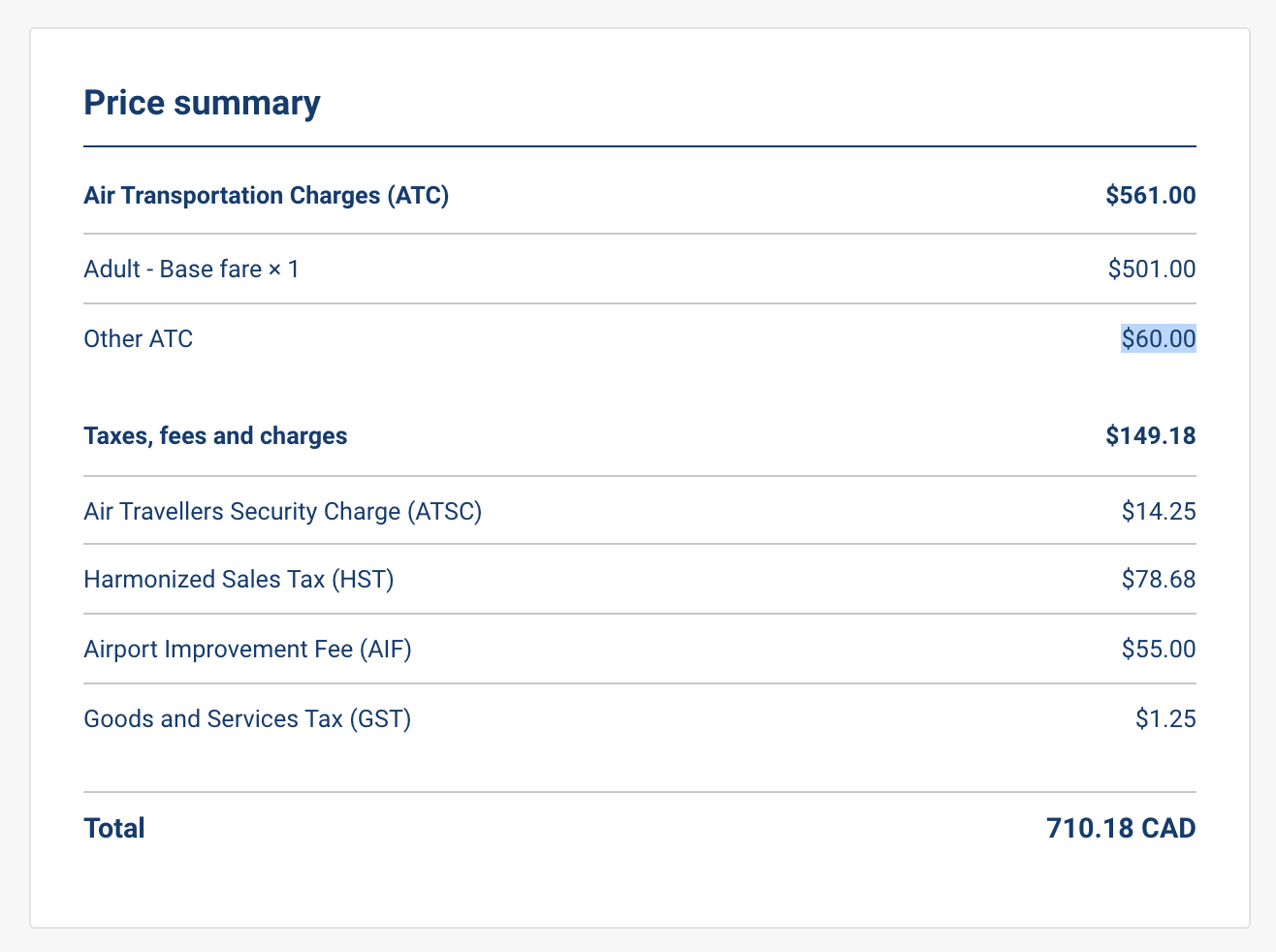
Verdict: It would be pretty straightforward for WestJet to include “other ATC charges” with the base fare when redeeming a companion voucher, but alas, the companion must pay out-of-pocket for it along with the government-imposed taxes and airport security and improvement fees. The Air Canada Buddy Pass, staying true to its commitment of zero surcharges alongside the $0 base fare and the third-party taxes and fees, wins this round.
Combining with Rewards
Both the Air Canada Buddy Pass and WestJet’s $0 companion voucher must be applied to regular cash bookings, and cannot be combined with award redemptions in their loyalty programs – Aeroplan points and WestJet Member Exclusive fares, respectively.
Now, when using the WestJet $0 companion voucher, it’s possible to redeem WestJet Dollars at a flat rate of 1 WestJet Dollar = $1 to offset the first passenger’s base fare.
In that sense, WestJet’s companion voucher can be combined with redeeming WestJet Dollars, but it’s a bit of a moot point since there isn’t any outsized value in redeeming WestJet Dollars in this fashion.
Verdict: Technically speaking, WestJet’s companion voucher can be combined with a rewards redemption, whereas the Air Canada Buddy Pass cannot – but it’s largely a moot point.
Conclusion
If we tally up the victories on both sides, we can see that WestJet’s $0 companion voucher has racked up a few more wins than the Air Canada Buddy Pass.
And on the whole, I do think it’s fair to say that WestJet’s offering is superior here, primarily thanks to their wider geographic coverage including Central American and the Caribbean on top of Canada, the US, and Mexico.
Counting against WestJet, however, is the fact that the companion traveller needs to pay extra “other ATC charges”, which really ought to be covered as part of the $0 base fare as Air Canada have done.
Meanwhile, the ability to upgrade Air Canada Buddy Pass bookings using eUpgrades makes it potentially more appealing to premium travellers. However, I’d love to see Air Canada introduce some form of conversion option for Buddy Pass holders who might not value it as highly (perhaps into a fixed number of Aeroplan points).
If you plan to fly with a companion on paid fares within North America over the next two years, you can’t go wrong with either option – or both if you’ve got multiple post-pandemic trips lined up!


